Sewage treatment, as an indispensable part of modern urban and industrial operations, is of self-evident importance. Just like the detoxification system of the human body, the sewage treatment system is responsible for purifying sewage generated by cities and industries, so that it meets the discharge standards, returns to nature, or is recycled. In this huge and complex system, steel pipes play a vital role as the "blood vessels" for transporting sewage.
However, traditional steel pipes often face many challenges in sewage treatment. For example, although steel pipes have high strength, they are easily corroded by various chemicals in sewage, resulting in rust and corrosion. Imagine that an iron pipe is immersed in sewage containing acid and alkali components for a long time, just like a piece of iron placed in humid air, it will soon be corroded. Once the steel pipe is corroded, it will not only affect its service life but may also cause the steel pipe to rupture and leak, thereby causing secondary pollution of sewage and causing serious harm to the surrounding soil and water environment.
It is precisely because of these problems with traditional steel pipes that in the field of sewage treatment, there is an urgent need for a steel pipe with better performance to meet the growing treatment needs. In this context, plastic-coated steel pipes came into being. It seems to be a "magic weapon" tailored to solve the problem of steel pipes for sewage treatment. Next, let's take a closer look at its unique advantages in sewage treatment.
First, the unique structure of
plastic-coated steel pipes
Plastic-coated steel pipes are not simply painted on steel pipes. Their structure is quite exquisite. Structurally, they are mainly composed of two parts: steel pipes and plastic coatings. As a matrix, the steel pipe is like the steel frame of a building, providing strong support and rigidity to ensure that the pipeline can withstand certain pressures and external loads and is not easy to deform or break. The plastic coating is tightly attached to the inner and outer surfaces of the steel pipe, just like putting on a layer of solid "protective clothing" for the steel pipe.
This layer of plastic coating is not a random material. Common ones include polyethylene (PE), epoxy resin (EP), etc. These materials have excellent chemical stability. Taking polyethylene as an example, it has good tolerance to common chemicals such as acids, alkalis, and salts, and can effectively prevent the corrosive components in sewage from directly contacting the steel pipe, thereby preventing the steel pipe from being corroded. Epoxy resin coating is not only corrosion-resistant but also has good adhesion and wear resistance, which can provide long-lasting protection for steel pipes under complex working conditions.
This perfect combination of steel and plastic makes plastic-coated steel pipes have the advantages of both steel pipes and plastics. It has both the high strength and high pressure resistance of steel pipes and the corrosion resistance and chemical resistance of plastics. It is like an all-round player, able to cope with various challenges in the complex "battlefield" of sewage treatment.
Second, the performance of plastic-coated steel pipes is excellent.
Compared with traditional steel pipes, plastic-coated steel pipes have shown obvious advantages in many performance aspects. Let's talk about corrosion resistance first, which is the "trump card" advantage of plastic-coated steel pipes. Traditional steel pipes are simply "vulnerable groups" in sewage treatment environments. Sewage is rich in various acids, alkalis, salts, and organic pollutants. These substances are like "corrosive demons" that constantly erode the surface of traditional steel pipes. Over time, steel pipes will rust, corrode, and have holes, cracks, and other problems. According to relevant statistics, without special anti-corrosion measures, the service life of traditional steel pipes in general sewage treatment environments may be only a few years.
The plastic-coated steel pipe successfully resists the attack of these "corrosion demons" with its strong plastic coating. Even if it is in a harsh sewage environment for a long time, the corrosion rate of the plastic-coated steel pipe is very low and can maintain good performance. Studies have shown that under the same sewage treatment conditions, the corrosion resistance life of the plastic-coated steel pipe is 3-5 times that of the traditional steel pipe, which greatly reduces the frequency of pipeline replacement and maintenance.
In terms of mechanical properties, although the plastic-coated steel pipe has added a plastic coating, it still maintains the high strength and good toughness of the steel pipe. The matrix of the steel pipe ensures that the pipeline can withstand greater pressure. Whether in the high-pressure transmission link inside the sewage treatment plant or in the long-distance sewage transmission process, the plastic-coated steel pipe can operate stably and will not easily break or deform. At the same time, the plastic coating also plays a certain buffering role. When the pipeline is impacted by external force, it can absorb part of the energy, further improving the impact resistance of the pipeline.
Looking at the service life, due to the excellent corrosion resistance and stable mechanical properties of plastic-coated steel pipes, its service life has been greatly extended. Under normal use and maintenance, the service life of plastic-coated steel pipes can reach 20-50 years, which is of great significance for sewage treatment systems. It not only reduces the high cost of frequent pipe replacement, including material cost, construction cost, etc., but also reduces the risk of sewage treatment interruption caused by pipeline failure, and ensures the stable operation of the sewage treatment system.
Third, the main advantages of plastic-coated steel pipes in sewage treatment
Plastic-coated steel pipes show many remarkable advantages in sewage treatment, each of which seems to be tailor-made to solve the problem of steel pipes in sewage treatment, making it stand out among many steel pipes and become the "darling" in the field of sewage treatment.
Fourth, the super strong anti-corrosion of plastic-coated steel pipes
The anti-corrosion performance of plastic-coated steel pipes is unique, mainly due to their unique plastic coating. When plastic-coated steel pipes are used for sewage treatment, various corrosive substances in sewage, such as acids, alkalis, salts, etc., are like ferocious "little monsters", threatening the safety of pipes at all times. The plastic coating of the plastic-coated steel pipe is like a solid "armor", tightly wrapping the steel pipe, keeping these "little monsters" out, effectively preventing them from contacting the steel pipe matrix, and thus avoiding the fate of the steel pipe being corroded.
In the sewage treatment systems of some chemical companies, sewage is extremely corrosive. There was once a chemical plant that used ordinary steel pipes before using plastic-coated steel pipes. After only 2-3 years of use, the steel pipes showed serious corrosion and had to be replaced frequently, which not only cost a lot of money but also affected the normal production of the company. Later, the chemical plant switched to plastic-coated steel pipes. After more than 10 years of use, the pipes are still intact and there are no obvious signs of corrosion. This fully proves the super corrosion resistance of plastic-coated steel pipes in harsh environments, greatly extending the service life of the pipes and reducing the cost of replacement and maintenance.
Fifth, physical corrosion protection of plastic-coated steel pipes
The surface of plastic-coated steel pipes is as smooth as a mirror. This feature makes it perform well in physical corrosion protection and plays a key role in maintaining the normal operation of the drainage system. When sewage flows in the plastic-coated steel pipe, due to its smooth inner wall, impurities and particulate matter in the sewage are difficult to adhere to the pipe wall, and it is not easy to form dirt and scale.
Imagine that if the inner wall of the steel pipe is rough, just like a rough wall, impurities in the sewage will easily adhere to it. Over time, these impurities will accumulate more and more, eventually leading to pipe blockage and sewage cannot be discharged normally. The plastic-coated steel pipe effectively avoids this situation. It can always keep the pipeline unobstructed and ensure the efficient operation of the sewage treatment system. This not only reduces the dredging and dredging work required due to pipe blockage, and reduces maintenance costs, but also improves the efficiency of sewage treatment, ensures that sewage can be treated in time, and avoids the occurrence of environmental problems such as sewage overflow.
Sixth, is the biological barrier of plastic-coated steel pipes
The inner wall of the plastic-coated steel pipe has a strong barrier effect on microorganisms, which is of great significance for protecting the environment and human health in sewage treatment. Sewage often contains a large number of bacteria, viruses, and other microorganisms. If these microorganisms breed and reproduce on the inner wall of the pipe, they may spread to the surrounding environment with the flow of sewage, causing pollution to water bodies, soil, etc., and then threatening human health.
The smooth inner wall of the plastic-coated steel pipe is like a solid line of defense, making it difficult for microorganisms to attach and survive. For example, in urban domestic sewage treatment plants, the use of plastic-coated steel pipes can effectively prevent harmful microorganisms such as Escherichia coli and Salmonella in sewage from growing in the pipes, preventing them from leaking or discharging into the natural environment through the pipes, thereby ensuring the safety of the urban ecological environment and the health of residents. At the same time, this also helps to improve the quality of sewage treatment, so that the treated sewage can better meet the discharge standards and realize the recycling of water resources.
Seventh, the pressure and impact resistance of plastic-coated steel pipes
During the sewage discharge process, the pipes will face various pressures and impacts, and the plastic-coated steel pipes have become a reliable guarantee for stable operation with their excellent pressure resistance, bending resistance, and impact resistance. In sewage treatment plants, the transportation of sewage often needs to be done by pumping, which will put a certain amount of pressure on the pipes. In addition, in some special cases, such as during heavy rain, the sewage flow rate will suddenly increase, causing a greater impact on the pipeline.
The steel pipe matrix of the plastic-coated steel pipe provides strong strength and rigidity, enabling it to withstand greater pressure without deformation or rupture. At the same time, the toughness of the plastic coating can act as a buffer when the pipeline is impacted, absorb part of the energy, and reduce the damage to the pipeline caused by the impact. Just like in a storm, the plastic-coated steel pipe can be like a strong guard, steadily withstand the impact of sewage, ensure the smooth discharge of sewage, and ensure the stable operation of the sewage treatment system, and will not fail due to external factors.
Eighth, the installation of plastic-coated steel pipes is convenient.
Plastic-coated steel pipes are light in weight and very easy to install. This feature brings significant cost advantages to sewage treatment projects. Compared with traditional steel pipes, plastic-coated steel pipes have increased their overall weight due to the addition of plastic coatings, but due to the relatively low density of plastic, their weight is still much lighter than pure steel pipes of the same specifications. This greatly reduces the cost of manpower and mechanical equipment required during transportation and installation.
In the construction project of a large sewage treatment plant, plastic-coated steel pipes were used for pipeline laying. Due to the lightweight plastic-coated steel pipes, construction workers can carry and install pipes more easily. The work that originally required a large number of construction workers and large lifting equipment can now be completed with less manpower and small equipment. This not only shortens the construction period but also reduces equipment rental costs and labor costs. At the same time, the connection method of plastic-coated steel pipes is relatively simple. Usually, welding, groove connection, and other methods can be used, which are convenient to operate, further improve construction efficiency, and reduce construction costs.
In summary, plastic-coated steel pipes have shown incomparable advantages in the field of sewage treatment with their excellent performance. Super strong anti-corrosion ability enables it to operate stably for a long time in harsh sewage environments; the smooth inner wall not only realizes physical anti-corrosion and keeps drainage unobstructed, but also effectively blocks microorganisms and protects the environment and human health; excellent pressure and impact resistance ensures the stability of the sewage discharge process; and the convenient installation feature saves a lot of time and cost for the project.
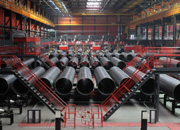 Threeway Steel is known as a professional supplier engaged in manufacturing and distributing a wide range of steel pipe, and our headquarter located the central part of China – Hunan and six associated factories throughout China.
Threeway Steel is known as a professional supplier engaged in manufacturing and distributing a wide range of steel pipe, and our headquarter located the central part of China – Hunan and six associated factories throughout China.
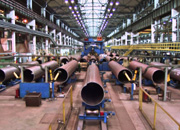 Threeway Steel is known as a professional supplier engaged in designing, manufacturing and distribution of a wide range of steel products with the headquarter located the central part of China – Hunan and six associated factories throughout China.
Threeway Steel is known as a professional supplier engaged in designing, manufacturing and distribution of a wide range of steel products with the headquarter located the central part of China – Hunan and six associated factories throughout China.
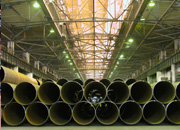 Threeway Steel is known as a professional supplier engaged in designing, manufacturing and distribution of a wide range of steel products with the headquarter located the central part of China – Hunan and six associated factories throughout China.
Threeway Steel is known as a professional supplier engaged in designing, manufacturing and distribution of a wide range of steel products with the headquarter located the central part of China – Hunan and six associated factories throughout China.
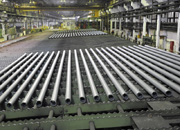 Threeway Steel is known as a professional supplier engaged in designing, manufacturing and distribution of a wide range of steel products with the headquarter located the central part of China – Hunan and six associated factories throughout China.
Threeway Steel is known as a professional supplier engaged in designing, manufacturing and distribution of a wide range of steel products with the headquarter located the central part of China – Hunan and six associated factories throughout China.
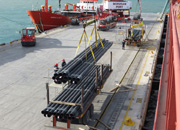 Threeway Steel is known as a professional supplier engaged in designing, manufacturing and distribution of a wide range of steel products with the headquarter located the central part of China – Hunan and six associated factories throughout China.
Threeway Steel is known as a professional supplier engaged in designing, manufacturing and distribution of a wide range of steel products with the headquarter located the central part of China – Hunan and six associated factories throughout China.

